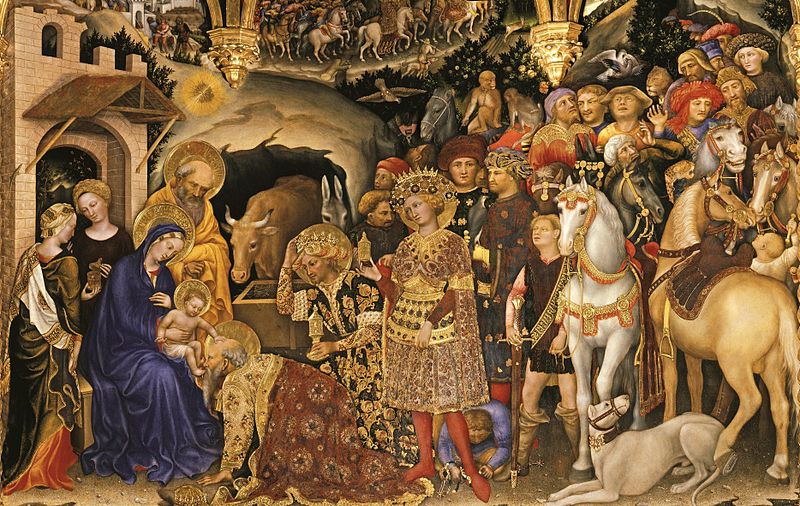Fr Paolo Consonni, MCCJ
Travelling is at the top of a wish list of many who for the last few years have been unable to leave their home countries because of Covid restrictions. As these regulations are gradually eased, we are hopeful that sometime this year, we might resume the comings and goings which are a part of our modern lifestyle.
In the past, travelling was not common. My grandmother died without having seen the sea, not even once in her lifetime. In her rural society, only soldiers, missionaries and few pilgrims were able to tell tales of faraway lands and peoples. Today, travelling for most of us is mostly reduced to vacations in some comfortable tourist attraction.
Still, journeying is one of the best metaphors that can describe life and, spiritually speaking, the quest for God that is embedded in the human soul. The two often coincide: only by finding God can we truly find the meaning of our existence. Case in point: the Magi of today’s Gospel (Mt 2:1-12) were probably people with restless hearts in search for spiritual answers. At the end of their long journey, they found God present in the most unusual and unsettling place, but this meant the beginning of another journey, this time within themselves.
Coming from afar to pay homage to the new born “King of the Jews”, these Magi are indeed mysterious figures, described often as wise men, sages or kings. The Church’s tradition believes that they stand for all the peoples of the world called to join Israel in adoration of the one true God who releveled Himself by becoming man. But they also represent each one of us, who, facing the complexity of our human condition, tries to “scrutinize” events in search for meaning and direction. For that we need a journey, namely to look beyond the superficial and the conventional. One can embark on such a journey only if he/she is genuinely open to the risks and surprises which are well outside one’s imagination or control.
T.S. Eliot, a poet at the beginning of the past century, described this process in his famous poem “The Journey of the Magi”. In this poem, one of the Magi narrates that when they set out it was “just the worst time of the year for a journey, and such a long journey”. During the cold nights, they regretted having left the comfort of their homes struggling to sleep “with the voices singing in our ears, saying that this was all folly”. What we call the “worse times” are often the best ones to begin a life-changing adventure.
When they finally arrived at their destination, the poem continues, they were puzzled by what they saw. They were looking for a powerful King capable of miraculous wonders, but they found instead a poor baby in a manger. Their expectations, their knowledge and their world-view were totally upset: “Were we led all that way for Birth or Death? […] This Birth was hard and bitter agony for us, like death, our death.” To accept God’s way to manifest Himself as a gift of love, powerless and vulnerable, implied the “death” of their own mentality, world-view and sense of identity.
What they saw changed them forever. “We returned to our places, these Kingdoms, but no longer at ease here, in the old dispensation, with an alien people clutching their gods. I should be glad of another death”. After their encounter with Jesus, nothing remained the same. God manifested Himself as a supreme gift of Love. The Magi understood that no wisdom or knowledge, no power or richness would ever satisfy their thirst for meaning, unless they followed His example and offer their life to Him and for the world. Leaving Bethlehem, a new, lifelong journey has begun, an adventure which will end only with their death which has now become the ultimate, desired destination: “You have made us for yourself, O Lord, and our heart is restless until it rests in you”, St. Augustine wrote.
Like the Magi, after these tough past years, we might also be puzzled about the meaning of what we went through and also about God’s role in our life. The Christmas message is that God who comes to share our sufferings, while not solving them, transforms them from within through the gift of Himself. It’s a mystery which is not easy to understand or accept.
We long for a new beginning in this post-Covid world, and we might be tempted to search for it in some exotic places. Good to have a vacation, but let’s not forget that the real life-changing journey is an inner one, on the road that leads us nearer to God and to others, especially those who are suffering. It’s a lifelong journey, to be done together, with the certainty that God will journey along with us.


 Follow
Follow


